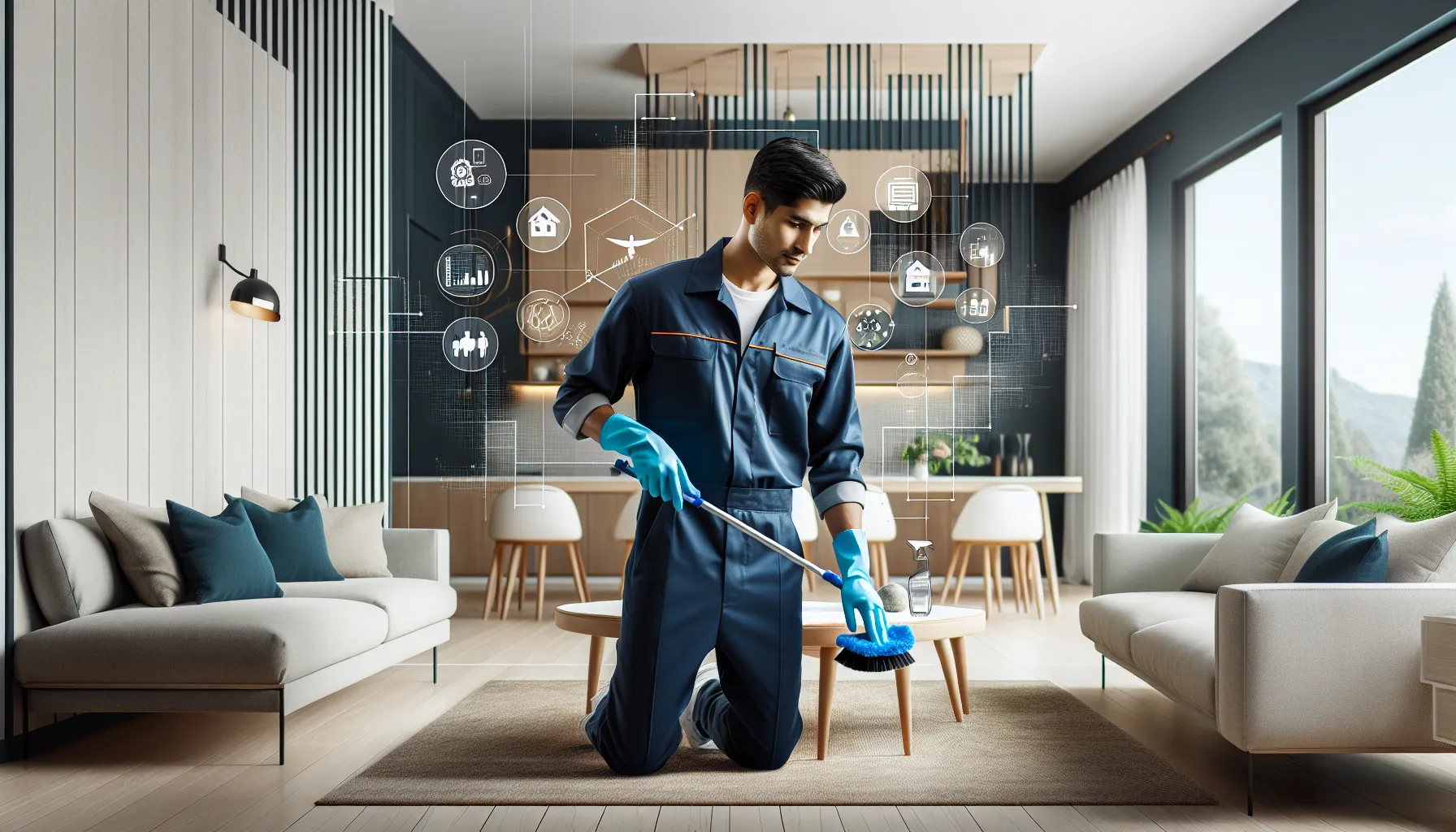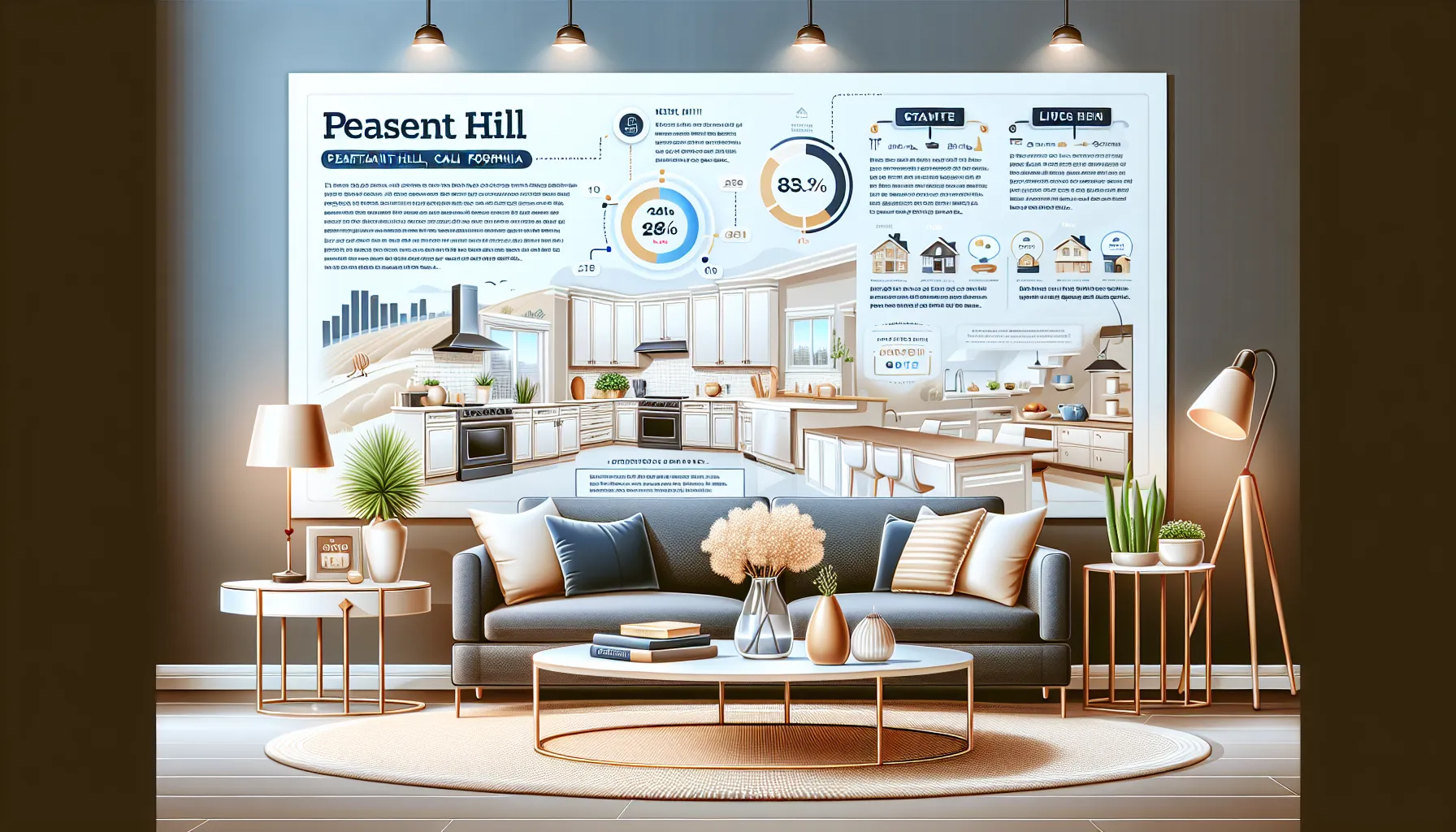Key Takeaways
- Thorough preparation, including cleaning and furniture inspection, is essential for a successful furnished unit turnover in Pleasant Hill.
- Regular inspections and clear documentation help protect your investment and ensure fair, transparent dealings with tenants.
- Partnering with local service providers and using detailed checklists streamlines the turnover process and prevents overlooked tasks.
- Prompt communication with tenants about move-in details and amenities builds trust and improves satisfaction.
- Addressing common challenges like wear and tear, deep cleaning, and quick maintenance ensures a smooth transition between tenants.
- Setting accurate expectations through clear lease agreements and inventory lists reduces misunderstandings and creates positive rental experiences.
Turning over a furnished unit in Pleasant Hill comes with its own set of challenges and rewards. I know how important it is to keep tenants happy while protecting your investment. Whether you’re an owner who’s moved away or an investor managing several properties, the process can feel overwhelming at times.
Have you ever wondered how to make the transition between tenants as smooth as possible? From preparing the space to responding to tenant requests quickly, every detail matters. I’ve seen how regular inspections and prompt communication can make all the difference, helping both property owners and renters feel confident and cared for. What steps do you take to make your furnished unit turnover stress-free?
Understanding Furnished Unit Turnover in Pleasant Hill
Turnover for a furnished unit in Pleasant Hill means preparing a living space so that a new tenant moves in comfortably and promptly. I focus on cleaning, inspecting furniture, and checking that appliances work. Each piece—from beds to light fixtures—needs to meet high standards. Have you ever walked into a furnished space where the details were overlooked? I know how much that can affect a first impression.
Quick responses give tenants confidence. When someone asks about move-in dates or reports a maintenance issue, I give clear answers and document all updates. Cleanliness and readiness matter most—my priority is a spotless environment and a functional layout.
Regular checks during and after a lease help protect my investment. Inspections spot issues early, such as stains on upholstery or scratches on tables. This prevents small problems from growing. Do you find periodic walk-throughs help you keep track of your property’s condition? I find they offer peace of mind and cost control.
Communication connects all these efforts. I keep channels open with tenants for everything from small requests to bigger concerns. Providing clear move-out and move-in instructions also smooths the transition. Open dialogue helps set fair expectations, leaving both parties satisfied.
In Pleasant Hill, successful furnished unit turnover depends on preparation, responsiveness, and ongoing communication. These efforts keep tenants happy and preserve the value of my investment.
Key Steps in the Turnover Process

Managing a furnished unit turnover in Pleasant Hill calls for attention to detail and a clear plan. Every step, from walk-throughs to fresh sheets on the bed, shapes a new tenant’s first impression. Are you curious how to streamline your turnover process and avoid last-minute surprises?
Inspection and Documentation
Inspection and documentation start every turnover. I review the condition of each room, checking walls, floors, and windows for new damage. With a camera or phone, I snap photos before and after tenants move, so there’s a record for any future questions. If a previous tenant raised maintenance concerns—such as a leaky faucet or flickering light—I’ve already logged those items in written notes. Careful documentation builds trust with tenants because they know their security deposit calculations are fair. How do you track condition changes between residents?
Cleaning and Maintenance
Cleaning and maintenance set the standard for the next occupant. I use a checklist to guide the cleaning crew, covering every surface from ceiling fans to under furniture. Kitchens and bathrooms get extra attention for hygiene and appearance. Maintenance covers immediate repairs, like loose hardware, and tests each appliance for proper function. Completing these steps promptly often means tenants settle in faster and feel comfortable immediately. What cleaning tasks do you find most important?
Furniture Assessment and Replacement
Furniture assessment follows cleaning. I inspect sofas, beds, and tables for stains, odors, or wobbly legs, replacing items that no longer meet comfort or safety standards. Even small updates—like new pillows or updated lamps—make the space more inviting. Tenants notice these touches and appreciate the effort to provide a fresh start. Have you ever replaced furniture for a unit turnover? What changes made the biggest impact on tenant satisfaction?
Tips for a Smooth Turnover Experience

Turning over a furnished unit in Pleasant Hill takes attention and care. A well-organized process eases stress for property owners and sets the stage for happy tenants. How can you create an experience that both welcomes new occupants and protects your investment?
Partnering with Local Service Providers
Partnering with skilled local service providers speeds up tasks that might otherwise slow the turnover process. Cleaners, repair technicians, and furniture movers handle specific jobs quickly and efficiently. For example, a cleaning crew familiar with furnished rentals knows how to deep clean upholstery and treat high-touch areas. Professional maintenance technicians address appliance or plumbing issues that can impact a new tenant’s first impression. By building a strong network of local experts, I stay prepared for quick turnovers. Have you considered which services you might delegate for peace of mind and time savings?
Creating a Detailed Turnover Checklist
Creating a detailed turnover checklist keeps every step on track. I begin with an itemized list covering each room and piece of furniture. This approach helps me avoid missing anything important, such as verifying that all remote controls and kitchen tools remain in place. I document the condition of each item during both move-out and move-in, using photos and notes to streamline communication with tenants. The checklist guides cleaning, repairs, and replacements, making it simple to track progress. How detailed is your current process, and where could a list help you feel more secure about your turnover routine?
Common Challenges and Solutions

Managing furnished unit turnover in Pleasant Hill brings several challenges that can feel overwhelming. Have you ever found yourself racing against the clock to get a unit ready for a new tenant? Quick transitions often demand fast action and solid organization.
1. Damage to Furniture and Appliances
Furnished units often see more wear and tear on items like sofas, beds, or kitchen appliances—think stained upholstery, scratched tables, or a broken microwave. I address this by scheduling thorough inspections between tenants and keeping an inventory list with photos. Promptly repairing or replacing damaged items helps avoid disputes and keeps the next tenant satisfied.
2. Deep Cleaning and Restocking
Deep cleaning after each lease ends can be time-consuming. Crumbs under couches, dust on ceiling fans, and bathroom residue are just a few spots that get overlooked. I use a detailed cleaning checklist and hire professionals with short notice, asking myself: did I check every corner for missed grime? I restock essential items such as pillows, linens, and kitchen utensils so tenants walk into a move-in-ready space.
3. Handling Tenant Requests Efficiently
Tenants moving into furnished units often have extra questions about included amenities. Have you noticed how being responsive can change a renter’s whole experience? I reply quickly and provide a guide explaining how appliances work and where extra supplies are stored. Fast communication builds trust and cuts down on repeated questions.
4. Setting Accurate Expectations
Misunderstandings about what’s included—like whether cable or kitchenware comes with the lease—lead to confusion. I list every furnished item in the lease agreement and review it with each tenant at move-in. If questions pop up later, clear documentation and ongoing dialog keep everyone on the same page.
5. Scheduling Maintenance and Inspections
Trying to juggle repairs, cleaning, and move-in dates can be stressful. Have you ever found maintenance issues that needed urgent attention in a short turnover window? I schedule semi-annual inspections and use maintenance checklists to spot and fix issues early, making last-minute surprises much less likely.
With careful planning and awareness of these common hurdles, every furnished unit turnover in Pleasant Hill can become smoother and less stressful for both landlord and tenant. What’s your biggest challenge with furnished turnovers? Are there steps that could make your process easier?
Conclusion
Managing a furnished unit turnover in Pleasant Hill takes dedication and a proactive approach. I’ve found that staying organized and attentive to details helps me maintain high standards and attract quality tenants.
By focusing on preparation and clear communication I can make each transition smoother and less stressful for everyone involved. This approach not only protects my investment but also ensures my tenants feel valued and comfortable from day one.
Frequently Asked Questions
What are the key steps in turning over a furnished unit in Pleasant Hill?
The main steps are inspection and documentation, deep cleaning and maintenance, assessing and replacing furniture as needed, and clear communication with both outgoing and incoming tenants. Following a detailed checklist and keeping thorough records help ensure a smooth turnover and protect your investment.
How can landlords ensure tenant satisfaction during turnover?
Landlords can boost tenant satisfaction by preparing the unit thoroughly, quickly responding to requests, and maintaining open communication. Providing clear move-in and move-out instructions also helps set fair expectations and creates a positive first impression for new tenants.
Why are regular inspections important for furnished units?
Regular inspections help spot any issues with furniture, appliances, or cleanliness early on. Addressing small problems before they grow keeps the unit in top condition and reduces the risk of costly repairs or dissatisfied tenants later.
What should be included in a furnished unit turnover checklist?
A turnover checklist should include inspection and documentation, cleaning all rooms, checking appliances, assessing furniture for damage, scheduling necessary repairs, and confirming utilities are working. It’s also helpful to include inventory checks and notes on completed maintenance.
How should landlords handle damaged furniture or appliances?
Landlords should assess damage during the inspection, document it with photos, and repair or replace items as needed. Having an inventory list helps track the condition and reduces disputes about wear and tear or security deposit deductions.
What are common challenges landlords face when turning over furnished units?
Common challenges include dealing with damaged furniture or appliances, ensuring deep cleaning, responding quickly to tenant requests, setting clear expectations regarding included amenities, and coordinating maintenance or inspections before new tenants move in.
How can working with local service providers help during turnover?
Partnering with local cleaners and maintenance technicians speeds up turnover tasks and ensures high-quality work. Reliable local partners can handle repairs and deep cleaning efficiently, reducing stress and ensuring the unit is ready on time.
Why is communication with tenants so important during turnovers?
Open and timely communication builds trust, reduces misunderstandings, and ensures tenants know what to expect. Clear instructions for moving in or out, and quick responses to questions or concerns, make the process smoother for everyone involved.
